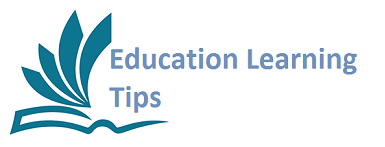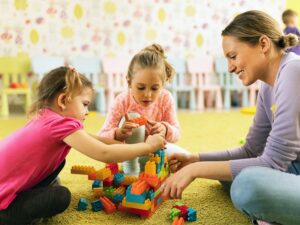Private schools place great emphasis on character education for their students. Students learn to value respect, empathy and self control that will serve them well throughout their educational pursuits and adult lives.
Smaller class sizes enable teachers and students to form close bonds, which allows teachers to adapt teaching styles accordingly for personalized learning for your child. Just take a look at the acclaimed Wycombe Abbey School Hong Kong, one of the top HK private school options available right now. It highlights the advantages of these schools, including what is highlighted below.
Smaller Class Sizes
Parents often face many options when selecting an educational environment for their child, including public and private schools, online or homeschooling options and AP and honors courses offered. One common advantage of private schools over their counterparts is smaller class sizes – an aspect proven to help boost student learning, improve engagement levels and foster strong teacher-student relationships while positively impacting achievement levels.
Smaller classrooms make it easier for teachers to connect with students, recognize individual learning strengths and weaknesses, and provide targeted instruction. Smaller class sizes also facilitate more interaction among students while giving teachers enough time for answering student queries or explaining complex subjects – giving all children an equal chance at making progress academically. This personalized attention can ensure all children make strides forward, not just those who excel academically.
Small class sizes may help shy or reluctant students participate more actively in class discussions and feel more engaged with the classroom community. Furthermore, reduced distractions from multiple students at once will enable those with attention disorders to better focus and learn.
Gantry View School in North Miami Beach provides an ideal example of such a school with its low student-teacher ratio that allows teachers to closely track and assist each child’s academic development, while offering extra care when necessary.
Furthermore, many public school teachers report being frequently interrupted by student behavior issues or communication challenges whereas private schools tend to see significantly reduced levels of disruption from student behavior issues or communication problems than their public counterparts resulting in significantly better student outcomes overall.
More Co-Curricular Options
Private schools not only offer academic advantages, but they can also give children additional opportunities to explore their passions and talents outside of classroom. From theater classes and swim teams to art programs and art history lectures, private school students have plenty of chances to develop these passions further and learn new skills – which may look great on college applications as well as help your child find their career path.
Private schools typically boast smaller enrollment numbers, which makes for an environment that encourages a sense of community among their students. Students won’t be able to hide at the back of class or provide vague answers because their teachers know them intimately and can assist when needed – creating an intimate educational experience not available elsewhere in society.
Students attending private schools can expect their teachers to show a high level of dedication. Most are experts in their respective subjects and possess advanced degrees. Not only do these instructors enjoy teaching, they often serve as role models to their pupils. This close relationship between teacher and pupil encourages confidence building while building work ethic in an encouraging, productive atmosphere.
Most private schools place great emphasis on the arts. Many offer music and theater classes both inside the classroom and as extracurricular activities – offering your child opportunities to express themselves more fully, grow more articulate, build confidence, and strengthen collaboration skills.
Many private schools place great emphasis on sports. This may involve athletic programs like basketball, volleyball and soccer as well as swimming lessons and sports teams for each sport – these sports programs teach children teamwork while encouraging maximum effort from them all. Furthermore, some schools even organize students into groups called houses which compete against one another throughout the year for various rewards.
Private schools typically provide more than sports; many also feature student councils and honor societies for children to develop leadership roles within the school community and boost self-esteem. Such activities look fantastic on college applications while helping your child build his or her sense of pride and independence.
A Strong Foundation for Future Success
Private schools have long recognized the value of encouraging parental involvement in their students’ education, creating an atmosphere in which children are surrounded by caring parents who actively contribute to establishing an educational foundation that will serve them throughout their lives.
Parental communities also play a vital role in helping teachers build more personal relationships with their students, which allows for increased individualized attention for every one of them. Furthermore, due to private schools not needing to comply with state regulations they can spend less time dealing with paperwork and more time instructing; giving teachers greater creative control over teaching methods while making learning enjoyable and effective for their pupils.
Similar to private schools, private schools tend to be stricter when it comes to discipline, which helps kids learn responsibility and self-discipline. This extends beyond classroom time into extracurricular activities where many schools provide various options that allow children to find their passion. Furthermore, many private schools provide additional opportunities for students to engage in community service work that fosters teamwork and resilience among its student body.
Combine these unique advantages with an intensive curriculum and it is clear why graduates of private schools are better prepared to succeed both academically and in life. They tend to score higher on standardized tests, enroll more often in advanced placement courses and benefit from strong alumni networks that can support their career goals.
Private schools offer students an academic experience that both challenges and nurtures, even during pandemics.
Sense of Community
Private schools provide their students with a strong sense of community. Just the process of applying to one, combined with rigorous academic standards they often impose, is often enough to form bonds between student and school. Furthermore, most private schools maintain lower student:teacher ratios so teachers can get to know their students better and create lessons tailored specifically for them; small class sizes make it easier for students to ask questions or seek assistance without feeling intimidated or overwhelmed.
Private school educators tend to be passionate professionals. Unlike public school educators who must adhere to government-imposed curriculums and concentrate on test results, private school educators often employ innovative teaching styles when planning lessons. Furthermore, these instructors often act as mentors for their pupils with collaborative can-do attitudes mirrored within the student body.
Private schools are well known to prioritize character education, teaching students the necessary empathy and respect that will translate into real world performance improvement. Furthermore, their values education curriculum often promotes morality and ethics for improved decision-making skills.
Private schools offer extensive extracurricular programs beyond traditional classroom learning, from rowing to fencing to basketball and camping trips – these schools can give their students opportunities they wouldn’t find elsewhere such as public schools.
So that they may give students an all-encompassing education that prepares them for life outside the classroom, extracurricular activities can provide students with a more holistic and well-rounded experience that ensures success outside academia. Such extracurriculars help develop leadership skills, allow exploration outside academia and foster passion for learning while familiarizing them with different cultures and perspectives while nurturing passions for academic pursuits; ultimately leading them towards academic excellence as they build leadership skills and explore different interests outside academia. With extracurriculars they may even better prepare themselves for higher level work and achieve success upon entering higher level work environments than expected by teachers alone!




